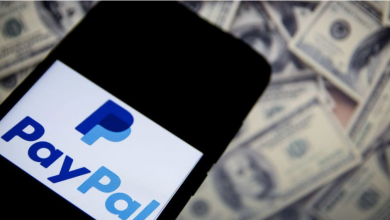Data Security and Personal Information Protection: Safeguarding Your Digital Life”
In today’s hyperconnected world, our personal information is more vulnerable than ever before. With an increasing amount of our lives conducted online, from shopping and banking to socializing and healthcare, data security and the protection of personal information have become paramount. In this article, we will explore the importance of data security and offer tips on how to safeguard your personal information in the digital age.
Understanding Data Security
Data security refers to the practice of protecting digital data from unauthorized access, corruption, or theft. This includes not only personal information like your name, address, and social security number but also financial data, health records, and more. The consequences of data breaches can be severe, leading to identity theft, financial loss, and damage to your reputation.
Why Data Security Matters
- Identity Theft: Cybercriminals often target personal information to commit identity theft. With your data, they can open fraudulent accounts, make unauthorized purchases, and even file false tax returns in your name.
- Financial Loss: A breach of your financial information can result in drained bank accounts, unauthorized credit card charges, and long-lasting financial repercussions.
- Privacy Invasion: Personal data, such as private emails or photos, can be exposed, violating your privacy and causing emotional distress.
- Reputation Damage: When personal information is leaked, your reputation can suffer, both personally and professionally.
Tips for Protecting Personal Information
- Use Strong, Unique Passwords: Create complex passwords for your online accounts, and avoid using the same password across multiple sites. Consider using a password manager to help keep track of them.
- Enable Two-Factor Authentication (2FA): Whenever possible, enable 2FA for your online accounts. This adds an extra layer of security by requiring a second verification step, such as a text message or authentication app.
- Regularly Update Software: Keep your operating system, applications, and antivirus software up to date. Updates often contain crucial security patches.
- Be Wary of Phishing: Don’t click on suspicious links or download attachments from unknown sources. Cybercriminals use phishing emails to trick you into revealing personal information.
- Secure Your Wi-Fi Network: Set a strong password for your Wi-Fi router and use WPA3 encryption. Avoid using default passwords, as they are often easy for attackers to guess.
- Limit Sharing on Social Media: Be mindful of the information you share on social media platforms. Cybercriminals can use personal details to target you.
- Regularly Monitor Financial Statements: Review your bank and credit card statements for any unauthorized transactions.
- Protect Your Devices: Use strong PINs, fingerprints, or facial recognition to secure your smartphones, tablets, and laptops.
- Back Up Your Data: Regularly back up important data to an external drive or secure cloud service.
- Educate Yourself: Stay informed about current cyber threats and security best practices to adapt to evolving risks.
Data security and the protection of personal information are essential in today’s digital landscape. By taking proactive steps to secure your online presence and staying vigilant against potential threats, you can minimize the risks associated with data breaches and enjoy a safer and more secure digital life. Remember, your personal information is valuable, and safeguarding it should be a top priority.
















